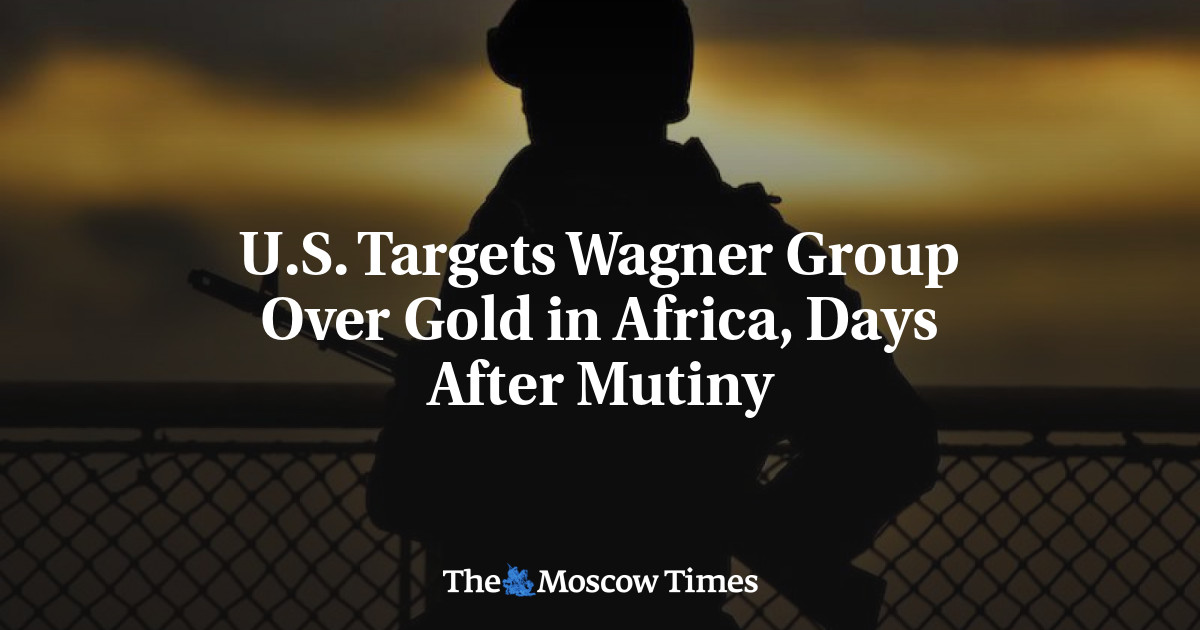
The United States on Tuesday imposed sanctions aimed at disrupting gold mining activities that fund the Wagner Group in Africa, vowing to hold the mercenaries accountable for abuses days after they staged a mutiny in Russia.
The measures against the Wagner Group had been previously planned but were briefly put on hold as U.S. officials sought to avoid appearing to favor a side in a power struggle between the mercenaries’ chief Yevgeny Prigozhin and Russian President Vladimir Putin.
The Treasury Department announced sanctions against Midas Resources, which operates mines in the Central African Republic, and Diamville, a gold and diamond purchasing company in the country — and said both were controlled by Prigozhin.
The sanctions — which will block any U.S. assets and criminalize transactions with the companies — also targeted a Dubai-based company, Industrial Resources General Trading, that was accused of handling finances for Prigozhin’s dealings in Diamville.
“The Wagner Group funds its brutal operations in part by exploiting natural resources in countries like the Central African Republic and Mali,” Treasury sanctions official Brian Nelson said in a statement.
“The United States will continue to target the Wagner Group’s revenue streams to degrade its expansion and violence in Africa, Ukraine and anywhere else.”
The Wagner Group has been contracted by military regimes in Africa and played an increasingly violent role in Russia’s invasion of Ukraine, with Prigozhin urging Putin to use even greater force.
State Department spokesman Matthew Miller, previewing the sanctions earlier Tuesday, renewed his criticism of the Wagner mercenaries, who have been accused of wide abuses in Africa.
“We believe that everywhere that Wagner goes, they bring death and destruction in their wake. They hurt local populations, they extract minerals and extract money from the communities where they operate,” Miller told reporters.
“And so we would continue to urge governments in Africa and elsewhere to cease any cooperation with Wagner,” he said.
The UN human rights body last month reported that foreign forces — identified by the United States as Wagner — were involved in a massacre of at least 500 people in the central Malian town of Moura in March 2022.
Prigozhin, as part of a deal with the Kremlin, was allowed to travel to Belarus, the Russian ally’s strongman Alexander Lukashenko confirmed on Tuesday.
Lukashenko’s decision to welcome Prigozhin marks “another example of him choosing the interests of Vladimir Putin and choosing the interests of the Kremlin over the interests of the Belarusian people,” Miller said.